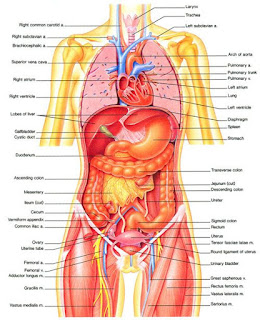Week 6: BioTech + Art
After watching videos
of the intersections of biotech, med-tech, and robotics with art are all
interrelated. Each discipline brings with it creative solutions to old
problems, but along with innovation comes the question of ethics. Animal testing
is controversial topic and often asked is it okay if it’s to test animals to improve
the human condition? The line between necessary and excessive is blurry, but I
believe that genetic modification should for the most part be reserved to
humans.
The Onco Mouse is a mouse that has been genetically modified
to be more susceptible to cancer, making it a better subject for cancer
research. The mouse is a genetically significant to human illness research,
because their DNA trees are very similar to humans. However, I believe that the
ultimate result of a closer cancer simulation is not a significant enough
reason to justify the animal suffering. On the other hand, at least we got some
results from testing animals so I think that is positive result.
The
question I do not yet have a stance on is that of how much modification is too
much. Stelarc’s Ear On Arm appears frivolous, or as scientists responding to
Eduardo Kac’s GFP Bunny might say, “interesting but silly.” I don’t see the
point of injecting the genes from a fluorescent jellyfish to bunny, rats, and
other animals to make them light under dark. Because they ‘look’ pretty, is
that really necessary improve humans lives? The only way I can understand this
is that they were just successfully able to mix genes and do the micro
injection. However, Stelarc’s justification of allowing for a possibly more
convenient type of communication gives the project a more than valid purpose.
It could even be modified to be a means of hearing for the conventionally deaf.
George Gessert’s hybridizing of wild irises is harmless, done
only for aesthetics. His project Genetic Folk Art emphasizes how humans
perceive and author nature. However, when the same concept is applied to human
modification, we end up with scientists modifying for genetic superiority. I
don’t think humanity will agree upon what is “too much” modification until we
have a uniform idea of what makes us human. However, through many
experimentation, humans can receive improvements to many aspects of life,
health in particular, through the ability of testing the success of medication
on rats and the ability to alter it and record the benefits and therefor apply
it to humans. I feel that biotechnology is an important aspect in human life
today and supports the progression and enhancements of human life.
“GFP Bunny.” Stretcher,
www.stretcher.org/features/edwardo_kac_flunks_the_rabbit_test/.
“Vacanti Mouse.” Wikipedia, Wikimedia Foundation, 10 Apr. 2018,
en.wikipedia.org/wiki/Vacanti_mouse#/media/File:Vacanti_mouse.jpg.
Vesna, Victoria. "BioArt Pt. 1." YouTube. YouTube.
Web. 13 May 2018. <https://www.youtube.com/watch?v=jUENH6GLzXY&list=PL9DBF43664EAC8BC7&index=13>.
Vesna, Victoria. "BioArt Pt. 2." YouTube. YouTube.
Web. 13 May 2018.
<https://www.youtube.com/watch?v=MdSt-Hjyi2I&index=12&list=PL9DBF43664EAC8BC7>.
Vesna, Victoria. "BioArt Pt. 3." YouTube. YouTube.
Web. 13 May 2018.
<https://www.youtube.com/watch?v=3EpD3np1S2g&list=PL9DBF43664EAC8BC7&index=11>.
"World Intellectual Property
Organization." Bioethics and Patent Law: The Case of the Oncomouse. Web.
13 May 2018. <http://www.wipo.int/wipo_magazine/en/2006/03/article_0006.html>.






I agree that biotechnology is an important aspect in human life and supports the progression and enhancements of human life. Humans are going to have benefits from the improvements Bio-art.
답글삭제